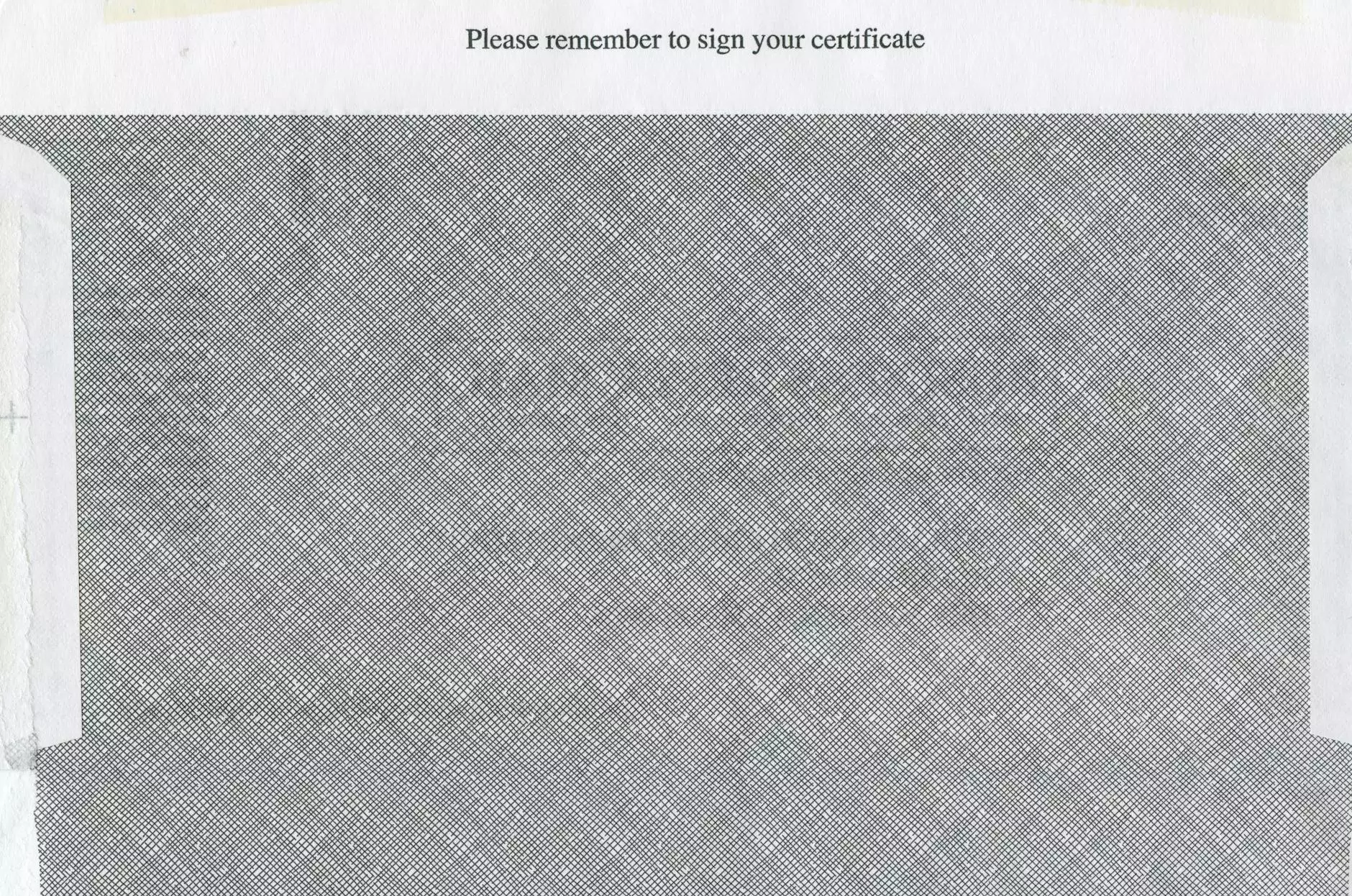Unlocking Business Potential with Data Compliance Software

In today's digital landscape, businesses are increasingly reliant on technology to manage their operations, data, and overall growth. However, with this reliance comes responsibility—especially regarding data security and compliance. The role of data compliance software is becoming more crucial than ever as organizations navigate the complexities of data protection laws, privacy regulations, and the ever-present threat of data breaches.
Understanding Data Compliance
Data compliance refers to the processes and regulations that organizations must follow to protect sensitive data and ensure that their data handling practices align with industry standards and legal requirements. Data compliance software helps organizations adhere to these regulations by offering tools and solutions that manage data security, privacy, and integrity.
The Necessity of Data Compliance Software
The rise of data breaches and cyber threats has made businesses sit up and take notice of their data security protocols. Regulatory bodies across the globe are implementing stringent laws such as the General Data Protection Regulation (GDPR) in Europe and the California Consumer Privacy Act (CCPA) in the United States. The consequences of non-compliance can be severe, both financially and reputationally, making data compliance software not just an option, but a necessity.
Key Benefits of Data Compliance Software
- Enhanced Security: By automating compliance processes, data compliance software enhances security protocols, reducing the risk of data breaches.
- Efficiency: Streamlining compliance tasks minimizes the time spent on manual checks and audits, enabling IT teams to focus on their core functions.
- Improved Accuracy: Automated compliance solutions often reduce human error, ensuring that data handling processes are accurate and compliant.
- Better Risk Management: Organizations can identify and mitigate potential risks before they escalate into major issues.
- Cost-Effectiveness: Investing in data compliance software can save organizations significant costs related to fines and remediation activities.
Choosing the Right Data Compliance Software
Choosing the right data compliance software can be a daunting task with the myriad of options available. This decision impacts how effectively your company can navigate compliance challenges, safeguard sensitive information, and position itself as a trusted entity within its industry. Here are some critical factors to consider:
1. Compatibility with Existing Systems
Before investing in data compliance software, it's essential to assess how well it integrates with your existing IT infrastructure. The software should be able to seamlessly work with current systems, applications, and processes.
2. Usability
The user interface and overall user experience of the software should be intuitive and easy to navigate. If the software is challenging to use, it can lead to errors and ultimately impact compliance efforts.
3. Customization Options
Each business is unique, and so are their compliance needs. Look for data compliance software solutions that offer customization options, allowing you to tailor it to your specific regulatory and operational requirements.
4. Reporting and Analytics
Robust reporting features are crucial. The software should provide comprehensive analytics and audits to help you understand your compliance posture, identify weaknesses, and make informed decisions.
5. Customer Support
Reliable customer support is vital for any software solution. Ensure that the vendor offers excellent support services to help you troubleshoot issues and maintain compliance standards.
Implementing Data Compliance Software
Once you've selected the right data compliance software, the implementation phase is crucial for achieving the desired results. Here are steps to streamline the process:
Assess Your Compliance Needs
Start by conducting a thorough assessment of your current compliance requirements. This includes understanding the regulations that apply to your industry, mapping your data flows, and identifying sensitive information.
Train Your Team
The success of any data compliance software greatly hinges on the people using it. Training your team on how to utilize the software effectively will optimize its benefits and ensure compliance responsibilities are met consistently.
Monitor and Review
Establishing a monitoring system to regularly review your compliance status is essential. Regular audits and reviews can help identify any gaps that need addressing and keep your compliance efforts on track.
Data Compliance Software Features to Look For
When evaluating potential solutions, be on the lookout for the following features:
Data Discovery
Data discovery capabilities are vital for identifying where sensitive data resides across your organization. This feature is essential for understanding your data landscape and ensuring data protection.
Policy Management
Your software should allow you to create, manage, and enforce data compliance policies easily. This will help maintain an organized framework for compliance throughout your organization.
Incident Management
In the event of a data breach or security incident, having a robust incident management feature allows your organization to react promptly and effectively, thus minimizing potential damage.
Data Encryption
Encryption tools within the software provide an additional layer of security, protecting sensitive data both at rest and in transit. This ensures that even if data is intercepted, it remains unreadable without the appropriate decryption keys.
Regular Updates and Compliance Checks
Your data compliance software should receive regular updates to keep up with evolving regulations. Automated compliance checks can help ensure your organization remains compliant as regulations change.
Real-World Impact: Case Studies
To better understand the value of implementing data compliance software, let’s look at a few case studies:
Case Study 1: Financial Services Firm
A financial services firm implemented data compliance software to manage its compliance with GDPR. Within six months, the company noticed a significant reduction in the time taken for compliance audits, which went from weeks to just days. The software enabled the firm to automate data discovery, policy management, and incident response, resulting in increased efficiency and enhanced reputation among clients.
Case Study 2: Healthcare Provider
A healthcare provider faced challenges in ensuring patient data security amidst stringent HIPAA regulations. After deploying data compliance software, they improved their security posture and reduced the incidence of data breaches. The software provided automated alerts for any potential compliance lapses, allowing the organization to address concerns proactively, thereby preserving patient trust and organizational integrity.
The Future of Data Compliance
As technological advancements continue to reshape the business landscape, the future of data compliance software will likely evolve in exciting ways. Artificial intelligence (AI) and machine learning are set to play pivotal roles in enhancing data compliance efforts:
Predictive Compliance
AI-driven analytics may soon be able to predict potential compliance issues before they arise. Such predictive compliance capabilities will enable businesses to take preemptive action, ultimately strengthening their overall security posture.
Real-Time Monitoring
Future data compliance tools will likely offer improved real-time monitoring capabilities, allowing organizations to respond immediately to compliance breaches or potential threats.
Integration with Other Technologies
The integration of data compliance software with other technologies such as cybersecurity solutions, cloud platforms, and enterprise resource planning (ERP) systems will enhance data visibility and protect sensitive information across all business areas.
Conclusion
In an era where data is one of the most valuable assets for any organization, the importance of data compliance software cannot be overstated. By investing in the right solutions and implementing best practices, businesses can navigate the complex landscape of data compliance while protecting their sensitive information. From increased efficiency to enhanced security, the benefits of data compliance software provide companies with the tools they need to thrive in today’s digital world.
As businesses continue to adapt to evolving regulations and security threats, those leveraging data compliance software will not only protect themselves but also position themselves as leaders in their respective industries. It’s time to embrace data compliance software and unlock your business’s full potential.









